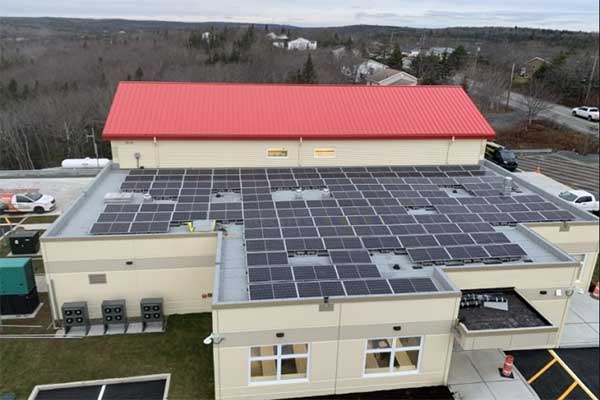With the forthcoming commercial net-metering program, Nova Scotia businesses will be able to generate more electricity from renewable sources, such as solar.
The program, said to be administered by Nova Scotia Power, utilizes a framework established through amendments to the province’s Renewable Electricity Regulations.
Changes to the Electricity Act in the Spring removed the requirement for residential customers to get installations approved by Nova Scotia Power.
“In the spring, our legislation cleared the way for homeowners to go green and lower their energy bills without any extra charges,” Tory Rushton, Minister of Natural Resources and Renewables, explained how the program came to be. “Now, regulations are in place to create a new commercial net-metering program that will help businesses pay less for power, support our green economy and take us another step closer to achieving our climate change goals.”
Net metering will allow customers to reduce the amount of electricity purchased from the grid by generating their own power from renewable energy installations, most commonly solar panels.
Excess energy would flow to the grid and result in the customer getting a credit on their next power bill.
If customers need more energy than they can produce, they buy it from the grid.
Previously, the maximum businesses could generate was 100 kilowatts.
The new program will enable eligible businesses, such as licensed aquaculture operations, registered farms, and wineries, to install systems capable of generating up to 1,000 kilowatts.
Most businesses will not require that amount of power, but it’s a step in the right direction that the program encourages businesses with greater energy needs to go green.
Smaller businesses will still be eligible under the small general customer class.
This would include retail stores and restaurants with a limit of 200 kilowatts.
The smaller energy allowance is warranted as these types of businesses typically have much lower energy needs than other businesses.
“Solar Nova Scotia is pleased with these new net-metering regulations, which will accelerate the adoption of solar energy in the province,” Dave Brushett, Chair of Solar Nova Scotia, expressed his enthusiasm about the program. “By enabling larger commercial solar installations, they will create jobs and contribute to the province’s emissions reduction goals.”
The messaging for this net-metering program aligns with other provincial rebate programs.
Installations should be sized to meet needs. Businesses will be required to work within their electrical capacity and available space, most commonly on roofs.
The latest amendments also set specific responsibilities and duties to Nova Scotia Power, who will run the program.
Nova Scotia Power can also count energy generated from net metering towards their renewable electricity targets.
However, Nova Scotia Power will be prevented from imposing additional system access charges on systems, and they will not be able to have part ownership of any independent renewable energy projects.
What’s next?
Nova Scotia Power is set to finalize plans for the new program and submit them by November 25th to the Nova Scotia Utility and Review Board for approval.













Comments